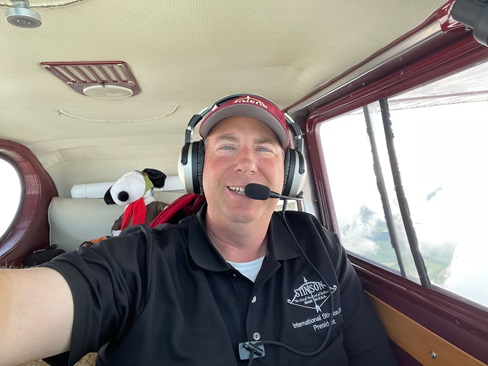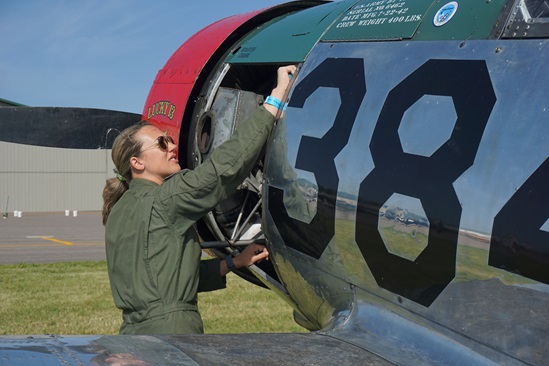Appareo launches innovative Stratus app
Audio cable unlocks tablet’s potential in the cockpit
Appareo announced the free Stratus Horizon Pro iOS application just before EAA AirVenture 2018 and demonstrated it at the show. Horizon Pro displays a backup Attitude Heading Reference System (AHRS), offers radio playback capability, and can deliver firmware updates to Stratus receivers. But a coming radio transcription function, currently in beta testing, is the feature that really turned heads.
Both radio playback and radio transcription require a connection between the pilot’s iPad or iPhone and the aircraft’s instrument panel—a need that Appareo addresses with its new Stratus Audio Cable. The $49.99 accessory connects in line with the pilot’s headset, allowing the app to hear and, eventually, transcribe radio calls. The cable also will allow the pilot to hear traffic alerts, terrain warnings, and other aural advisories from electronic flight bags or flight management apps running on the device, such as ForeFlight.
The radio transcription feature will work in the same way as visual voicemail works. ATC communications will be converted into text and displayed directly above the audio playback line, making it easy to reference previous audio clips. It’s driven by speech recognition and language understanding technology designed by Appareo’s Artificial Intelligence division. “Stratus Horizon Pro is an exciting first step toward AI-assisted technology for pilots,” said Appareo AI Systems Director Josh Gelinske. “We look forward to building on the core of this machine learning technology to reduce workload and increase safety in the cockpit.”
Rapid speech, noise, the narrow frequency band, and unique terminology provided challenges. “By using a custom-designed deep neural network trained on thousands of hours of speech and hundreds of hours of ATC data that we collected and transcribed, we’ve created a speech recognition system which can run on mobile devices without an Internet connection,” Gelinske explained. “Natural language processing is also used to interpret the output of the speech recognition system to present it in a more pilot-friendly format. For example, tail numbers, altitudes, runways, and frequencies are transcribed in a way that will be more helpful to pilots.”
The audio cable really is the key, said Zach Peterson, Appareo aviation sales manager. “Immediately what it does is it gives you audio playback.” And customers can apply to the beta test program for audio transcription. The system uses GPS location to determine the proper fix when there’s a duplicate name in the system, he added. “That’s where the future of transcription is going—to be smart enough to recognize where you are. It does not need to be connected to the internet; it’s completely self-supporting.”
For beta testers, he said the company is looking for pilots who fly a lot, and who operate in different parts of the country, to pull in variations and regional inflections. “A controller in Texas speaks a lot differently than a controller in Boston,” Peterson noted. Beta testers’ audio files and transcriptions will upload automatically to Appareo when they have Wi-Fi connections.
The app will archive a couple hundred hours of recordings, which don’t take up much space, but the pilot can clear them at any time. A cabin filter function suppresses recording of the pilot and passengers—but this can be turned off if, for example, an instructor and student are working on radio calls; then it will capture the student’s transmission and the controller’s response.
Demo recordings are very accurate, not repeating “One zero, ten thousand” but—for now—including controllers’ “Ah” interjections. “We’ll get a lot better at it,” Garberg said.
“This new AI technology is the baseline for exciting features we have in our app roadmap,” he added. “The Appareo Aviation product roadmap is focused on creating a safer, more convenient way to fly. It centers around a beyond-glass strategy, which is the future of aviation.”
Stratus Horizon Pro is designed to work with an iPad’s Split View, as well as the new multitasking feature that allows the use of two apps at the same time. This means pilots can have Stratus Horizon Pro displayed as a small overlay, while continuing to run their favorite EFB. The app can be viewed in day mode, night mode, or a HUD mode for those who have a head up display.
Stratus Horizon Pro is available for free download from the App Store, and the Stratus Audio Cable can be ordered online. For more information about Stratus, visit the website.




